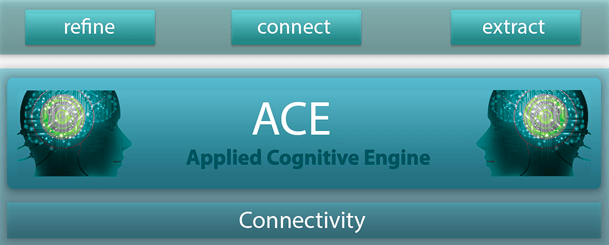
Earlier this year David Lumsden, the CSO of pioneering UK legal AI company, RAVN Systems, was appointed CEO.
It was a significant step in several ways. First of all Lumsden was previously the CEO of UK legal software company, Tikit, which later was listed and then bought by BT. That is to say, Lumsden has experience of running a company a lot larger than RAVN, which is only six years old this year. He was also CIO at UK law firm Ashurst in the 1990s, back when legal technology was very much still a novel idea to many lawyers.
It’s also significant because he is the first CEO of the company who was not one of the original founders, in this case replacing Peter Wallqvist, who had held the executive role for several years. Wallqvist is now in turn the CSO.
In short, RAVN is now being led by someone who is was not there at the start and with the kind of background that is familiar with major corporate deals and the world of public companies. Or, in other words, RAVN has grown to the next level in its journey. It’s certainly no longer a start-up.

Artificial Lawyer caught up with Lumsden to ask him about this transition and what it means.
The meeting takes place in new offices that are a little more posh compared to the one Artificial Lawyer first visited back in the spring of 2016, which now seems like a very long time ago considering how much has changed in the world of legal AI.
The new office for the 50-employee AI company is a little more corporate, although the meeting rooms still feel lived in, rather than the sterile deal rooms one finds in some City offices. It’s also still in Shoreditch, just.
Lumsden begins by explaining his own trajectory. He had met with the RAVN team as far back as 2011 when he was still at Tikit.
‘I could see then that this [RAVN’s technology] was the future. But, at the time we [at Tikit] were not ready for it. And Jan [Van Hoecke – co-founder of RAVN and CTO] was not ready then to take on big clients.’
So, nothing came together. But, when Lumsden left Tikit in 2014, ‘things were hotting up’ he says. RAVN had grown to 25 people and the former CEO now wanted to make sure the young tech company didn’t fall into any traps and go bust, as happens to so many start-ups.
The relationship remained informal, but in July 2016 and after a period of providing consulting advice, he became the CSO of RAVN.
Lumsden then moves onto all the many products that RAVN has developed. And there are a lot of ideas there all designed to make a lawyers’ life easier and to add efficiency and value.
Along with the mainstay of its natural language processing (NLP)-driven document analysis software, the company has developed several other applications. For example, one of the newer products allows a law firm to analyse the work they do so they can make it easier to cost a matter, which is especially important in commercial litigation.
The company has also created a new product to help separate privileged from non-privileged content, which has been used with the SFO.
Lumsden is also bullish about RAVN’s position in the legal AI market, which is rapidly increasing in size and the number of competitors. He is also confident that RAVN’s ‘recipes’ of the NLP algorithms they use to crack the meaning of legal texts are better than their rivals’ recipes.
No doubt some rivals would dispute the claim and to be fair to all the other AI companies in the legal market there has yet to be an objective test of all the companies’ capabilities. But, perhaps this only underlines the difference now in the legal AI market of 2017 to that of just a couple of years ago.
In 2015 many legal AI companies were simply trying to get the attention of law firms. Well, they have succeeded in that quite spectacularly. The battle now in 2017 is a more traditional one, which is for market share and brand position.
But, what next? It’s probably a little early to follow Tikit’s route to an IPO and a takeover by a giant FTSE company. That said, if that ever happened, RAVN’s four founders would be somewhat better off. This is because RAVN remains primarily self-funded. There is no VC money here.
Lumsden adds that the immediate future is more about developing new products and expanding the client base, not just law firms, but corporates. RAVN’s platforms are already used by BT, which as you’ll probably note, bought Tikit, Lumsden’s alma mater.
He mentions that aside from legal the insurance market is especially interesting now. Brokers, like lawyers, need to crunch a lot of unstructured data, i.e. the text of insurance policies. And also like lawyers they need to reduce risk and move quickly to meet client needs. In which case, this seems like prime territory for the AI products developed for the legal world.
‘Insurance companies have to ring fence the capital they need to meet future risks. So they need to classify the potential impact of all their policies. By using AI to track all these documents a company can see more clearly what capital they need,’ Lumsden explains.
And because a better picture of capital needs is provided by the AI software less capital needs to be pooled, which allows the insurance company to do other things with it. Lumsden reckons that using AI could reduce insurance companies’ capital needs by 5%. And in a multi-billion pound industry, this is a huge amount.
Overall then, the future looks bright and there are lots of opportunities for RAVN and its software. Probably the greatest test that RAVN and their new boss face is not so much growing the company, which now seems to have gained its own momentum, but rather deciding in which direction it should grow.
But then, that is a rather nice challenge to have.
1 Trackback / Pingback
Comments are closed.